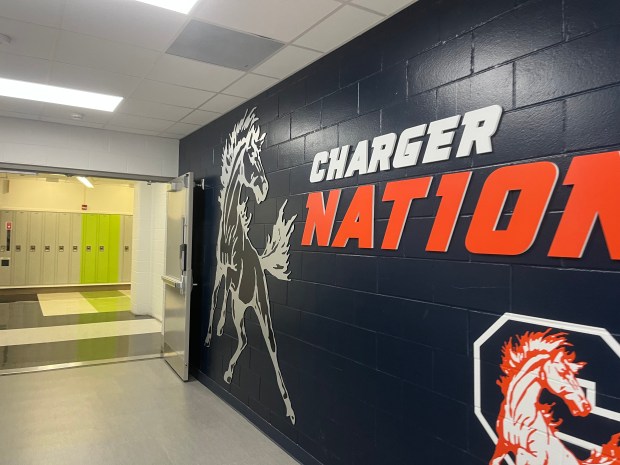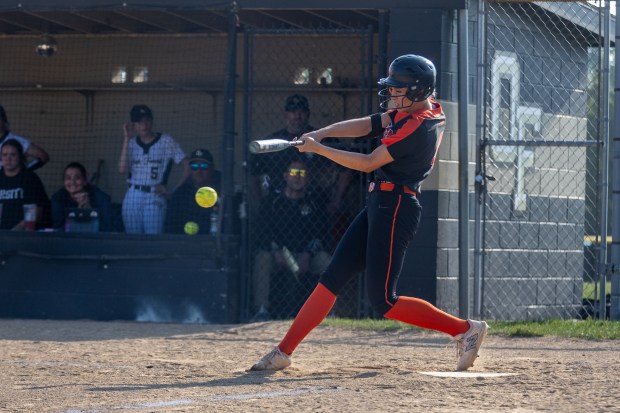Following a year of changes in the makeup of the High School District 230 Board, more turnover is possible as nine candidates vie for four contested seats in April.
Four board members are seeking to keep their spots as District 230 decisionmakers, including Incumbent Tony Serratore running unopposed for a 2-year seat.
The other three incumbents face five outside challengers for a 4-year term. One seat is open, as Kate Murphy-Peterson is not seeking reelection after 12 years of service.
The district is made up of Orland Park’s Carl Sandburg High School, Tinley Park’s Victor J. Andrew High School and Palos Hills’ Amos Alonzo Stagg High School.
The April 1 school board election follows the completion of a $15 million expansion of Stagg High School as well as protests from teachers working without a contract.
Nadine Scodro and Chris Kasmer were recently appointed to fill board vacancies left by former members, so both must run to keep their seats.
The two are part of the 230 United slate that includes board veterans Serratore and Susan Dalton. Mark Kelly, who is on the Palos Park Elementary District 118 Board, is the only newcomer on the slate.
Other candidates are James Bax, Mike Martinez, Tim Danlow and Tesneem Amine, all of Orland Park, and Lukas Verzbicas, of Palos Heights.
Verzbicas is best known for his athletic achievements, winning the world junior title in triathlon three months after he graduated from Sandburg in 2011. He continued to compete after a bicycle crash left him with spinal injuries so severe doctors initially worried he might not walk again.
Verzbicas was unavailable for an interview, but his social media indicates indicates skepticism of the COVID-19 vaccine as well as of transgender people participating in sports. In one post on X, formerly Twitter, he encouraged voters to support Orland Park Mayor Keith Pekau, a Republican, “and likeminded candidates” in upcoming elections.
Kasmer, a parent of Sandburg High School students, said he believes 230 United’s strengths lie in its candidates’ diversity of perspectives. He was sworn in in September to replace Patrick O’Sullivan, who resigned after moving outside the district’s boundaries.
“To have a group of people that have different points of view but can still work together is probably like the most critical thing of every board,” Kasmer said. “I do think it’s important that the slate kind of represents the different areas of the district as much as you can.”
Kasmer said if elected to the 4-year position, he would look to shift attention from district facility improvements to student outcomes.
The Orland Park resident said his experience working in trades will aid his ability to best serve a wide range of students, not just those seeking a traditional college education. Kasmer is president of Carpenters Local 1027 and a trustee to the Chicago Transit Authority’s Retiree Health Care Trust.
Kasmer also said he supports the district’s chosen metrics of student success, but as a parent of freshmen, sees room for improvement on communication with those entering the district.
“I really think that probably some of the best work that I’ll be able to do as a school board member is going to be in my first couple years as a parent in the district,” Kasmer said. “Some of the things that the administration thinks that they’re communicating, you’re not getting all of that … It’s like sometimes just having fresh eyes, and fresh eyes of somebody who’s experiencing it as a parent, is I think valuable.”
Dalton, in contrast, has been on the board for more than a decade and is chair of both the student services and building and finance committees. She said she has always lived within District 230, and she herself was a Sandburg Eagle.
Across her four terms on the board, Dalton said some of her proudest achievements include removing barriers for students looking to take advanced courses and balancing fiscal responsibility with giving students the best education possible.
She said the Stagg expansion, which made way for 11 new classrooms, four science labs, seven offices, a 20-person conference room, a rooftop garden and teacher workspaces, is an example of how she and other board members have worked to make improvements under budgetary constraints.
“We’ve had over 20 years of a balanced budget, which within the state is really kind of unheard of — it’s very difficult to maintain that,” Dalton said. “We’ve always been fiscally responsible with those taxpayer dollars while still increasing our offerings … We work really hard to make sure that those dollars go to the students.”
ostevens@chicagotribune.com





